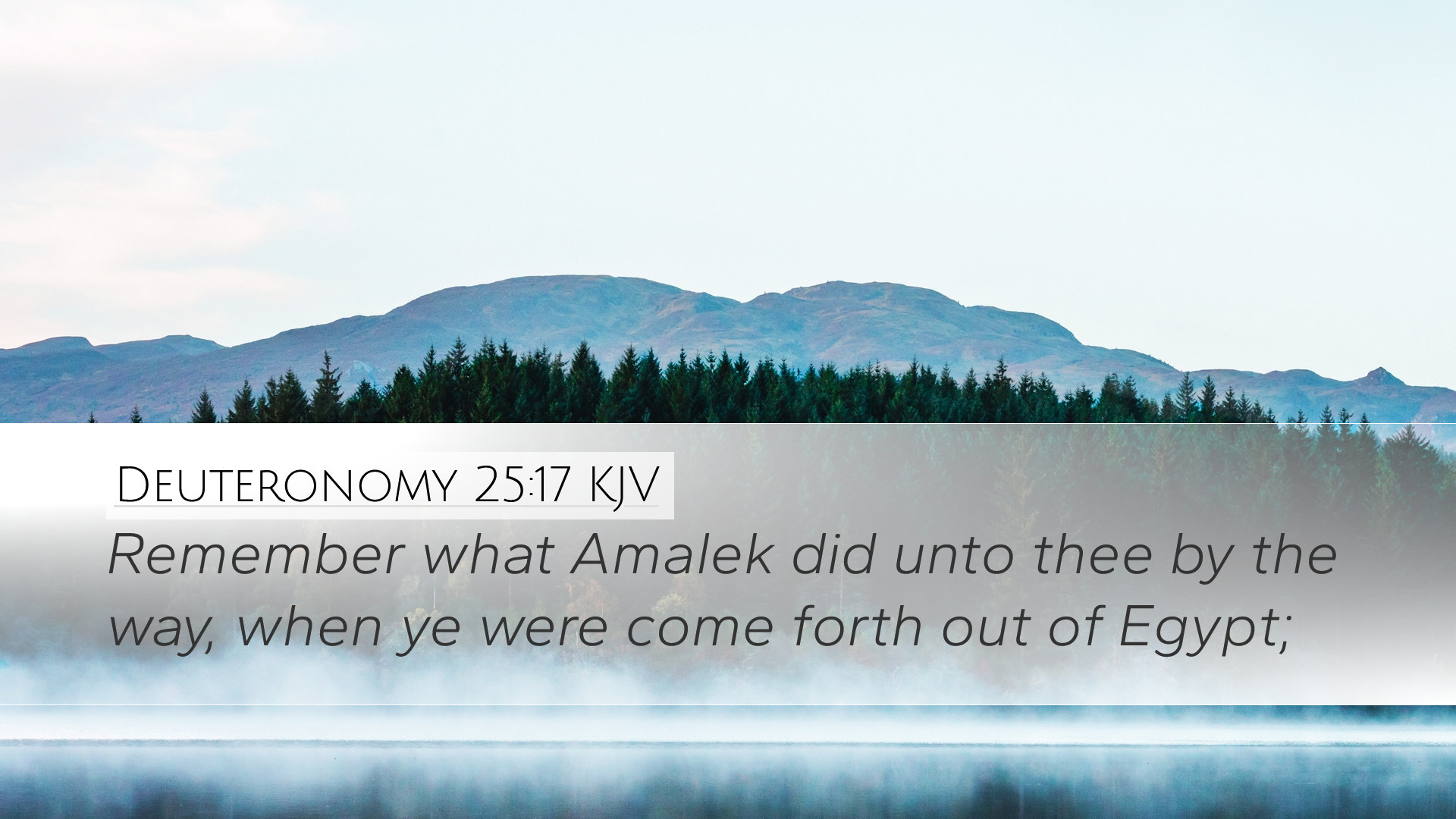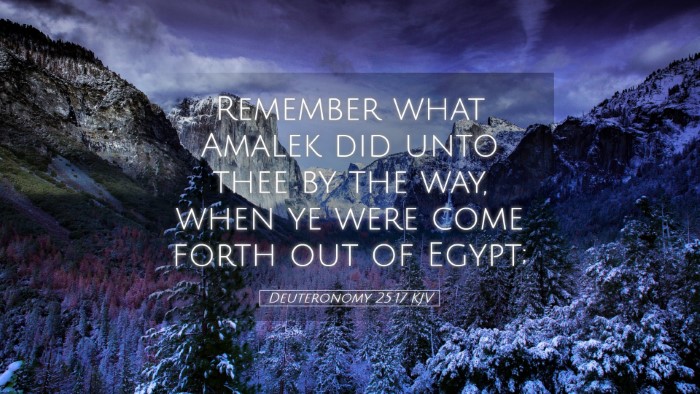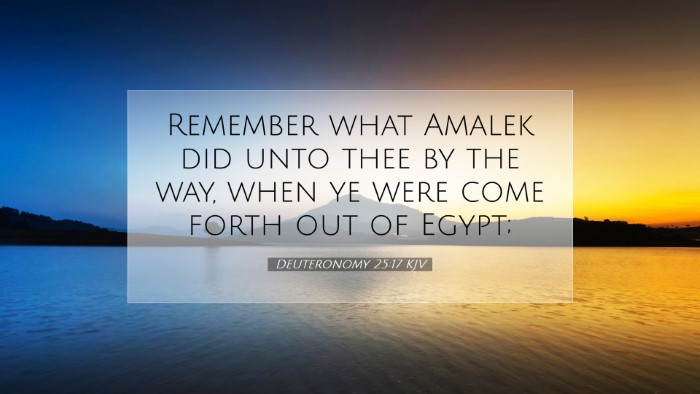Commentary on Deuteronomy 25:17
Bible Verse: "Remember what Amalek did to you on the way as you came out of Egypt, how he attacked you on the way and cut off your tail, those who were lagging behind you; and he did not fear God."
Introduction
This verse stands as a poignant reminder of the nation's history and God's covenant with Israel. The command to remember is critical, as it underscores the significance of collective memory in faith and identity. Various commentators emphasize the themes of justice, divine remembrance, and the moral imperative to resist evil.
Historical Context
Matthew Henry, in his commentary, elucidates the historical backdrop of this verse. He explains that the Amalekites were one of the first nations to attack Israel following their deliverance from Egypt. This attack was not merely a military action; it was an affront to God's chosen people, demonstrating a profound disregard for God's power and the covenant relationship He established with Israel.
Significance of Remembering
Both Albert Barnes and Adam Clarke stress the importance of the command to "remember what Amalek did." The act of remembering serves several purposes:
- Identification of Foes: It keeps the people aware of their spiritual and physical adversaries.
- Motivation for Justice: It evokes a collective sense of responsibility to uphold justice against evil that has attacked them.
- Covenantal Faithfulness: It reminds the Israelites of God’s faithfulness in their deliverance and supports the basis for their relentless pursuit of justice against oppressors.
The Nature of the Attack
In describing the Amalekite attack, the phrase "cut off your tail" is particularly striking. This metaphor, as noted by Henry, reflects a ruthless strategy where the vulnerable—those who were lagging—were targeted, showing a lack of hesitance and respect for God's covenant people. This brutal action illustrates the overarching theme of violence against the vulnerable, and the need for God’s people to uphold justice.
Theological Implications
From a theological standpoint, Clarke emphasizes that this attack symbolizes the spiritual struggle against sin and evil. Amalek represents those forces that oppose God's will and strive to diminish His people. The remembrance of Amalek points to a broader spiritual reality: the necessity of vigilance against all manifestations of evil that seek to undermine God’s purposes.
Divine Retribution and Justice
The verses that follow in the chapter outline God's mandate for retribution against Amalek, reinforcing the concept that God is a God of justice. Barnes articulates that forgetting the deeds of Amalek would lead to complacency, and ultimately, moral decay. The command to “blot out the remembrance of Amalek from under heaven” serves as both a warning and a reminder for future generations to uphold justice firmly.
Resistance Against Evil
This theme of resistance connects deeply with the Christian understanding of spiritual warfare. Many theologians see Amalek as a type of sin, reminding the faithful that ongoing vigilance and resistance are required. As they reflect on the nature of warfare, both physical and spiritual, the call to remember serves as a rallying cry for the Church to engage actively against threats to the faith.
Lessons for Today
In conclusion, the message of Deuteronomy 25:17 extends beyond its historical context. It challenges believers today to consider the implications of remembrance and retribution in their lives. As Henry notes, this call to remember should cultivate compassion for the vulnerable and a commitment to justice in the present and future contexts.
Practical Applications:
- Cultivating a Culture of Remembrance: Churches can facilitate discussions and teachings on the importance of remembering past injustices and God's deliverance.
- Advocating for the Vulnerable: Creating programs that support those who find themselves in circumstances similar to those lagging behind could serve as a practical application of this text.
- Active Engagement in Justice: Encouraging congregations to stand against modern-day evils and injustices through advocacy and outreach efforts.
Final Thought
The enduring lesson from this verse challenges individuals and communities to remain vigilant, promote justice, and uphold the memory of past wrongs as a means to foster a righteous future. The richness in Deuteronomy 25:17 provides critical insights not only for pastoral reflection but also for practical ministry in today’s world.


